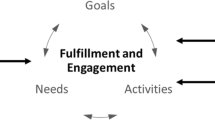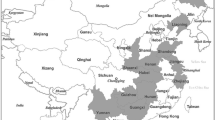Abstract
Previous research has detailed how social status affects the willingness to have children. However, subjective social status (SSS) derived from a comparison with a reference group also has an important impact on fertility desire. This study explores the relationship between the past, present, and future SSS and fertility desire, using data from the Chinese General Social Survey, a nationally representative population survey conducted in 2017 (N= 4,864). The study found that the individual's fertility desire is positively enhanced by the current SSS, the expected SSS in the future, and the upward trend of SSS throughout the course of life. Compared with the group with a low level of SSS and with little change in SSS, the fertility desire of the group with "Rising first and then stable" SSS and "Rising" SSS significantly increased. The results suggest that the expectation of positive changes in social status will stimulate fertility desires and produce long-term family plans. With the rapid development of China's social economy and the positive response to the low fertility rate, social policies should be adopted to open up channels for the protection and improvement of the social status of citizens and to achieve an increase of fertility desire.




Similar content being viewed by others
Data availability
All of the data used in this analysis are publicly available through this website http://www.cnsda.org/.
References
Aarssen, L. W. (2005). Why is fertility lower in wealthier countries? The role of relaxed fertility-selection. Population and Development Review, 31(1), 113–126. https://doi.org/10.1111/j.1728-4457.2005.00054.x
Atalay, K., Li, A., & Whelan, S. (2021). Housing wealth, fertility intentions and fertility. Journal of Housing Economics, 54, 101787. https://doi.org/10.1016/j.jhe.2021.101787
Baizan, P. (2020). Linking social class inequalities, labor market status, and fertility: An empirical investigation of second births. Advances in Life Course Research, 46, 100377. https://doi.org/10.1016/j.alcr.2020.100377
Balbo, N., Billari, F. C., & Mills, M. (2013). Fertility in advanced societies: A review of research. European Journal of Population/revue Europeenne De Demographie, 29(1), 1–38. https://doi.org/10.1007/s10680-012-9277-y
Becker, G. S., Murphy, K. M., & Tamura, R. (1990). Human capital, fertility, and economic growth. Journal of Political Economy, 98(5, Part 2), S12–S37. https://doi.org/10.1086/261723
Boyd, M. (1973). Occupational mobility and fertility in metropolitan Latin America. Demography, 10(1), 1–17. https://doi.org/10.2307/2060747
Chen, W. M., & Li, X. Q. (2021). The effect of status identity and social mobility expectations on fertility willingness—A study on the mechanism of the low fertility trap. Nankai Journal (philosophy, Literature and Social Science Edition), 2, 18–30. in Chinese.
Dribe, M., Oris, M., & Pozzi, L. (2014). Socioeconomic status and fertility before, during, and after the demographic transition: An introduction. Demographic Research, 31, 161–182.
Dribe, M., & Smith, C. D. (2021). Social class and fertility: A long-run analysis of Southern Sweden, 1922–2015. Population Studies, 75(3), 305–323. https://doi.org/10.1080/00324728.2020.1810746
Elder, G. H. (2018). Children of the great depression: Social change in life experience. Routledge.
Evans, M. D., & Kelley, J. (2004). Subjective social location: Data from 21 nations. International Journal of Public Opinion Research, 16(1), 3–38. https://doi.org/10.1093/ijpor/16.1.3
Freedman, D. S. (1963). The relation of economic status to fertility. The American Economic Review, 53(3), 414–426.
Freedman, R., Baumert, G., & Bolte, M. (1959). Expected family size and family size values in West Germany. Population Studies, 13(2), 136–150. https://doi.org/10.1080/00324728.1959.10405036
Freedman, R., & Coombs, L. (1966). Economic considerations in family growth decisions. Population Studies, 20(2), 197–222. https://doi.org/10.1080/00324728.1966.10406094
Galor, O., & Weil, D. N. (2000). Population, technology, and growth: From Malthusian stagnation to the demographic transition and beyond. American Economic Review, 90(4), 806–828. https://doi.org/10.1257/aer.90.4.806
Goodman, E., Huang, B., Schafer-Kalkhoff, T., & Adler, N. E. (2007). Perceived socioeconomic status: A new type of identity that influences adolescents’ self-rated health. Journal of Adolescent Health, 41(5), 479–487. https://doi.org/10.1016/j.jadohealth.2007.05.020
Guo, C., Yang, P. S., & Mu, Y. H. (2023). Expectations of improvement of socioeconomic status throughout the life course as a component for promoting fertility intentions. China CDC Weekly, 5(16), 365–367. https://doi.org/10.46234/ccdcw2023.069
Guo, Y. Y., Yang, S. L., Li, J., & Hu, X. Y. (2015). Social fairness researches in perspectives of social class psychology. Advances in Psychological Science, 23(08), 1299–1311. in Chinese.
Gustavus, S. O., & Nam, C. B. (1970). The formation and stability of ideal family size among young people. Demography, 7(1), 43–51. https://doi.org/10.2307/2060021
Guzzo, K. B., & Hayford, S. R. (2020). Pathways to parenthood in social and family contexts: Decade in review, 2020. Journal of Marriage and Family, 82(1), 117–144. https://doi.org/10.1111/jomf.12618
He, M. S., & Yu, M. (2017). Per capita household income, intergenerational social mobility and fertility desire. Studies in Labor Economics, 5(05), 117–140. in Chinese.
Heiland, F., Prskawetz, A., & Sanderson, W. C. (2008). Are individuals’ desired family sizes stable? Evidence from West German panel data. European Journal of Population/revue Europeenne De Demographie, 24(2), 129–156. https://doi.org/10.1007/s10680-008-9162-x
Hou, J. W., Huang, S. L., Xin, Z. Q., Sun, L., Zhang, H. C., & Dou, D. H. (2014). A change in the desired fertility of the Chinese population: 1980–2011. Social Sciences in China, 4(78–97), 206.
Hu, R., & Ye, L. Y. (2014). Subjective socioeconomic status and class identity of urban residents. Social Sciences in Heilongjiang, 5(90–96), 92. in Chinese.
Jackman, M. R., & Jackman, R. W. (1973). An interpretation of the relation between objective and subjective social status. American Sociological Review. https://doi.org/10.2307/2094408
Jain, A. K. (2010). Data clustering: 50 years beyond K-means. Pattern Recognition Letters, 31(8), 651–666. https://doi.org/10.1016/j.patrec.2009.09.011
Kasarda, J. D., & Billy, J. O. (1985). Social mobility and fertility. Annual Review of Sociology. https://doi.org/10.1146/annurev.so.11.080185.001513
Ke, W. J. (2020). Legal analysis of the starting age of Chinese women of childbearing age. Governance Studies, 05, 123–128. https://doi.org/10.15944/j.cnki.33-1010/d.2020.05.013. in Chinese.
Kelley, J., & Evans, M. D. (1995). Class and class conflict in six western nations. American Sociological Review. https://doi.org/10.2307/2096382
Kraus, M. W., Piff, P. K., & Keltner, D. (2009). Social class, sense of control, and social explanation. Journal of Personality and Social Psychology, 97(6), 992. https://doi.org/10.1037/a0016357
Lan, M. (2021). Relationship between Chinese women’s childhood family background and their fertility intentions under different policy conditions. Journal of Child and Family Studies, 30, 3016–3028. https://doi.org/10.1007/s10826-021-02095-y
Leibenstein, H. (1974). An interpretation of the economic theory of fertility: Promising path or blind alley? Journal of Economic Literature, 12(2), 457–479.
Li, J. (2021). From income to wealth: Class identification and its change in urban China—A temporal trend analysis on Shanghai from 1991 to 2013. Sociological Studies, 36(03), 114–136.
Li, J. X., & Qiu, L. Y. (2022). An analysis on the Fertility of China’s Minority population and its influencing factors—A case study of Zhuang, Hui, Manchu, Uygur, Tibetan and Mongolian. Journal of Northwestern Ethnic Studies, 01, 139–155. https://doi.org/10.1486/j.cnki.62-1035/d.20220124.003. in Chinese.
Li, N. (2022). A two-sex renewal model and its population projection. Theoretical Population Biology, 143, 46–51. https://doi.org/10.1016/j.tpb.2021.11.001
Li, P. L. (2005). Social conflict and class consciousness: A study of social contradictions in contemporary China. Society, 01, 7–27. https://doi.org/10.15992/j.cnki.31-1123/c.2005.01.003. in Chinese.
Li, P. L., & Zhang, Y. (2008). The scope, identity, and social attitudes of the middle class in China. Society, 02(1–19), 220. https://doi.org/10.15992/j.cnki.31-1123/c.2008.02.003. in Chinese.
Liefbroer, A. C. (2009). Changes in family size intentions across young adulthood: A life-course perspective. European Journal of Population/revue Europeenne De Demographie, 25(4), 363–386. https://doi.org/10.1007/s10680-008-9173-7
Lim, S. (2021). Socioeconomic differentials in fertility in South Korea. Demographic Research, 44, 941. https://doi.org/10.4054/demres.2021.44.39
Michael, R. T., & Tuma, N. B. (1985). Entry into marriage and parenthood by young men and women: The influence of family background. Demography, 22(4), 515–544. https://doi.org/10.2307/2061586
Miller, W. B. (1992). Personality traits and developmental experiences as antecedents of childbearing motivation. Demography, 29(2), 265–285. https://doi.org/10.2307/2061731
Miller, W. B., & Pasta, D. J. (1993). Motivational and nonmotivational determinants of child-number desires. Population and Environment, 15(2), 113–138. https://doi.org/10.1007/BF02209405
Moberg, S. (1950). Marital status and family size among matriculated persons in Sweden. Population Studies, 4(1), 115–127. https://doi.org/10.1080/00324728.1950.10415508
Modena, F., Rondinelli, C., & Sabatini, F. (2014). Economic insecurity and fertility intentions: The case of Italy. Review of Income and Wealth, 60, S233–S255. https://doi.org/10.1111/roiw.12044
Monnier, A. (1989). Fertility intentions and actual behaviour. A longitudinal study: 1974, 1976, 1979. Population, ES1, 237–259.
Navarro-Carrillo, G., Valor-Segura, I., & Moya, M. (2018). Do you trust strangers, close acquaintances, and members of your ingroup? Differences in trust based on social class in Spain. Social Indicators Research, 135(2), 585–597. https://doi.org/10.1007/s11205-016-1527-7
NBSC. (2021). National bureau of statistics of China: Bulletin of the seventh national census. Retrieved May 11, 2021 from http://www.gov.cn/guoqing/2021-05/13/content_5606149.htm
NBSC. (2023). National Bureau of statistics of China: Government information disclosure. Retrieved January 18, 2023 from http://www.stats.gov.cn/xxgk/jd/sjjd2020/202301/t20230118_1892285.html
Qiao, X. C. (2021). China’s population development, changes and current situation, reference to data of the seventh population census. Population & Development, 27(04), 74–88. in Chinese.
Quesnel-Vallée, A., & Morgan, S. P. (2003). Missing the target? Correspondence of fertility intentions and behavior in the US. Population Research and Policy Review, 22(5), 497–525. https://doi.org/10.1023/B:POPU.0000021074.33415.c1
Sakurai, K., Kawakami, N., Yamaoka, K., Ishikawa, H., & Hashimoto, H. (2010). The impact of subjective and objective social status on psychological distress among men and women in Japan. Social Science & Medicine, 70(11), 1832–1839. https://doi.org/10.1016/j.socscimed.2010.01.019
Schwarz, N. (1994). Judgment in a social context: Biases, shortcomings, and the logic of conversation. Advances in Experimental Social Psychology, 26, 123–162. https://doi.org/10.1016/S0065-2601(08)60153-7
Sobotka, T. (2009). Sub-replacement fertility intentions in Austria. European Journal of Population/revue Europeenne De Demographie, 25(4), 387–412.
Testa, M. R. (2014). On the positive correlation between education and fertility intentions in Europe: Individual-and country-level evidence. Advances in Life Course Research, 21, 28–42. https://doi.org/10.1016/j.alcr.2014.01.005
Testa, M. R., & Basten, S. (2014). Certainty of meeting fertility intentions declines in Europe during the ‘Great Recession.’ Demographic Research, 31, 687–734.
UNFPA. (2022). World population day. Retrieved July 11, 2022 from https://www.unfpa.org/events/world-population-day
Wang, Y. R., Fan, H. Y., & Guo, C. (2021). Trend and factors of population fertility changes from the perspective of economics and education––China, 1949–2020. China CDC Weekly, 3(28), 599–603. https://doi.org/10.46234/ccdcw2021.159
Wolff, L. S., Subramanian, S. V., Acevedo-Garcia, D., Weber, D., & Kawachi, I. (2010). Compared to whom? Subjective social status, self-rated health, and referent group sensitivity in a diverse US sample. Social Science & Medicine, 70(12), 2019–2028. https://doi.org/10.1016/j.socscimed.2010.02.033
Wu, F. (2020). Review on fertility intentions: Theories and empirical studies. Sociological Studies, 35(04), 218–240+246. https://doi.org/10.19934/j.cnki.shxyj.2020.04.011
Yu, J., Zhou, Y., & Xie, Y. (2021). Macro-level social factors and ideal number of children in China. Population Research, 45(06), 45–61. in Chinese.
Zhang, L. N. (2018). Socioeconomic status, subjective mobile perception and the reproductive willingness of women of childbearing age: Based on empirical research data of CGSS2013. Journal of Xihua University (philosophy & Social Sciences), 37(03), 40–48. https://doi.org/10.19642/j.issn.1672-8505.2018.03.006
Zheng, Z. Z. (2014). Measurement and application of fertility intention. Chinese Journal of Population Science, 06, 15–25+126. in Chinese.
Zuanna, G. D. (2007). Social mobility and fertility. Demographic Research, 17, 441–464.
Acknowledgements
We thank all the participants, investigators, and all relevant staff in the Chinese General Social Survey (CGSS). We thank the Scientific Research Foundation of Peking University for supporting this research. In addition, we thank the anonymous reviewers of this journal for their help and guidance.
Funding
This work was supported by the Scientific Research Foundation of Peking University, the Fundamental Research Funds for the Central Universities (No. 7100604137).
Author information
Authors and Affiliations
Corresponding author
Ethics declarations
Conflict of interest
The authors declare that they have no competing interests.
Ethical approval
The survey was reviewed and approved by the National Survey Research Center at Renmin University of China (NSRC).
Patient consent
Informed consent was obtained from all individual participants included in the study.
Permission to reproduce material from other sources
No material is from other sources.
Supplementary Information
Below is the link to the electronic supplementary material.
Rights and permissions
Springer Nature or its licensor (e.g. a society or other partner) holds exclusive rights to this article under a publishing agreement with the author(s) or other rightsholder(s); author self-archiving of the accepted manuscript version of this article is solely governed by the terms of such publishing agreement and applicable law.
About this article
Cite this article
Yang, P., Guo, C. The better future projections the more childbirth: the association between subjective social status and fertility desire of the Chinese population. China popul. dev. stud. 7, 438–456 (2023). https://doi.org/10.1007/s42379-023-00147-y
Received:
Accepted:
Published:
Issue Date:
DOI: https://doi.org/10.1007/s42379-023-00147-y




